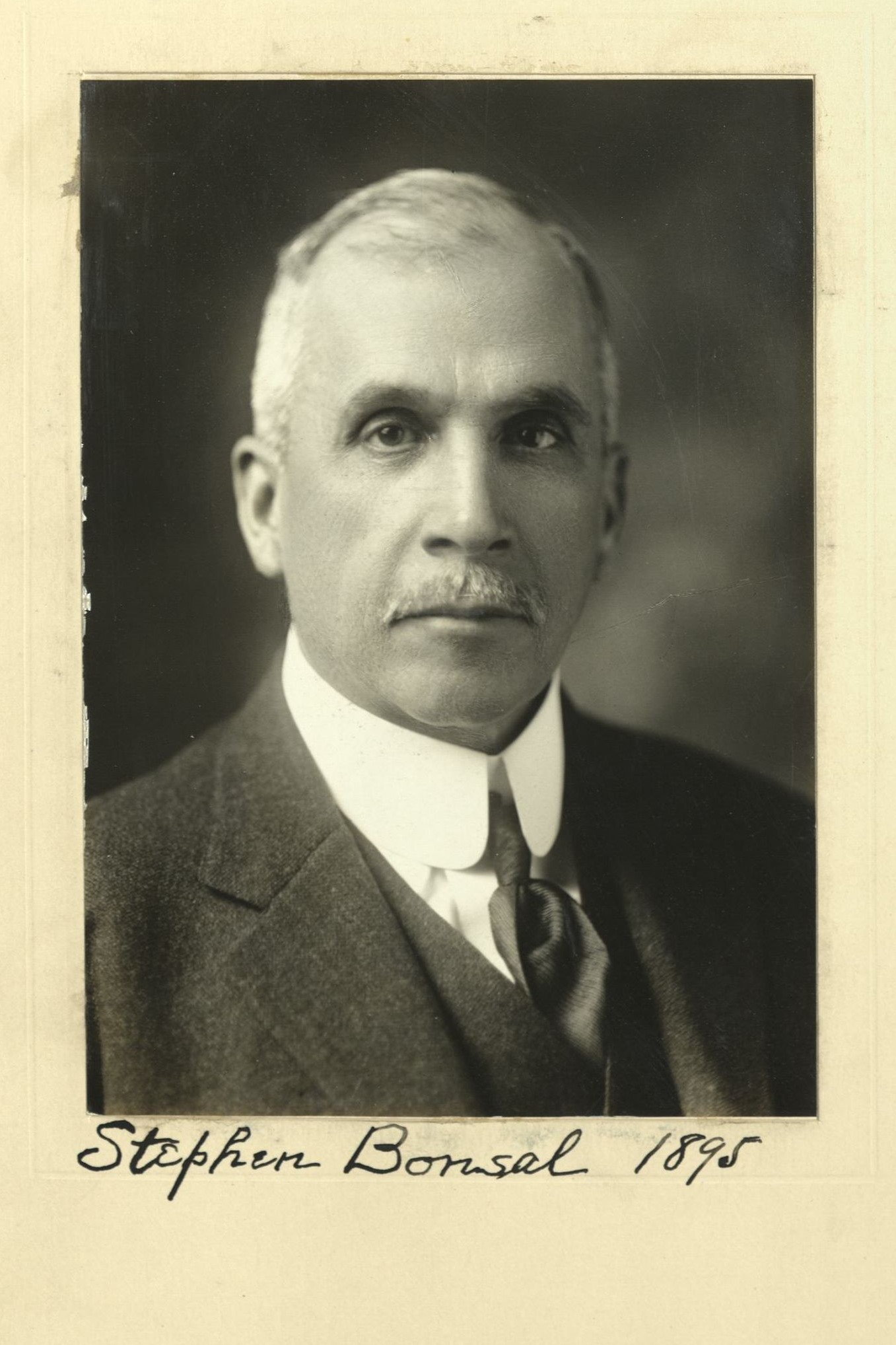U.S. Secretary of Legation
Centurion, 1895–1951
Born 29 March 1865 in Baltimore, Maryland
Died 8 June 1951 in Washington, District of Columbia
Proposed by Poultney Bigelow and F. Hopkinson Smith
Elected 7 December 1895 at age thirty
Archivist’s Note: Father of Dudley B. Bonsal and Philip W. Bonsal
Seconder of:
Century Memorial
Stephen Bonsal was elected to the Century long, long ago: in 1895. He was thirty in that year, and even in those horse-and-buggy days that was an early age to join. When Whitelaw Reid died in 1902 [sic: 1912] he became the dean of American war correspondents.
He went to all the wars—all of them. He began with the war between Servia and Bulgaria in 1885 and after that whenever there was a war, there he would go. As a correspondent he had not only the advantage and perception to see the inside of events, but he held official positions where he could see the outside from the inside, which balanced his perspective. In our diplomatic service, 1893–97, he was Secretary of Legation, or Chargé d’ Affaires, in Peking, Tokyo, and Madrid. The Far Eastern service gave him background for the Chino-Japanese War of 1895, for the coming Russo-Japanese War, 1904–05, and the Chinese Revolution. That in Madrid enabled him to know Spain before our war with her. In 1913–14, he held positions under our Governor-General of the Philippines, which familiarized him with the islands from Mindanao to Luzon. The second year of World War I, 1915, found him again in the role of a correspondent with Hindenburg’s army in East Prussia. Back in the United States, before our entry into World War I, President Wilson sent him on a special mission to Mexico. Next, 1916–17, he acted as adviser to the American Mexican joint commission; next, as a Major and Lieutenant Colonel assigned to studies in the War College; and next, 1918, with the A.E.F. in France. After the armistice he was a member of the Allied Commission under General Smuts to Austro-Hungary, and was sent on a special mission to Germany and Bohemia.
Attached to the Peace Conference, his knowledge of the peoples of central Europe and their languages was of more value to President Wilson than acting for him at times as interpreter. It held Bonsal in Europe for the forming of the Covenant and the organization of the League of Nations.
While he was living in Westchester, before World War I, his trips to town always brought him to the Century. Afterward, settled in an old house at Georgetown, the Metropolitan Club in Washington saw him frequently. On his trips to New York he would reappear at the Century again absorbing its atmosphere, and contributing to it. Or he might be seen at a nearby hotel where young writers gathered, listening to what they had to say.
When complimented on his extraordinary gift for languages, he would say pointedly, “I worked very hard at them.”
Considering his career, his interest in personal publicity was unconventionally remote. He inclined to have you tell him, instead of his telling you. It was necessary to “discover” his potentialities when he sat next to you at the long table. When you did, he might mix some pepper with his sprinkle of salt, which helps to prevent conversation lapsing into a repetition of clichés.
Stephen Bonsal was a highly cultivated man. As a correspondent, he was much more than a news gatherer. He was a great and active reporter of what he called a “vanished world.” His pioneering historical background is of value now when his country has a major role in the making of future world history.
George W. Martin
1951/1952 Century Association Yearbook

